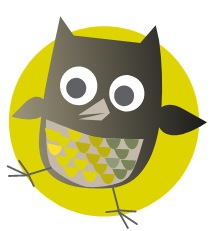After spending ten years as a school librarian, Beverley Humphrey is now a literacy adviser involved in a number of reading and writing projects. Here she gives her expert advice on how you can help choose the right book for your 7–11 year old.
1. Visit libraries
Try to visit your local library regularly with your child. Libraries are an ideal place for children to experiment and discover new genres outside their normal reading choices. The librarian can also help guide book choices and recommend other good reads whether they are in print, online, or as audio books.
“Now that your son or daughter is in the juniors, hopefully they will be starting to read more confidently and will begin to develop their own reading tastes. It’s important to guide and support them to become more independent at choosing books and taking risks with their choices. This helps to extend their reading range.”
2. Read book reviews
Encourage your child to check out book reviews in bookshops, newspapers, magazines, and on children’s TV. There are also some excellent reading blogs that give book suggestions for all ages, as well as children’s author and book websites (take a look at this glossary of children’s authors’ websites from the Federation of Children’s Book Groups for a good starting point).
We have lots of booklists on Oxford Owl packed with recommended reads from top authors. Check out John Dougherty’s suggestions for great books to get boys reading, Joanna Nadin’s recommendations to inspire and encouarge your daughter, Ben Davis’ top 10 funny books, or Harriet Muncaster’s top 10 magical books for some of our expert recommendations.
3. Seek out taster chapters and trailers
In the same way that films have always been preceded by a trailer advertising the movie, many authors and publishers now release taster trailers before books are published. You can find lots of these on YouTube or publishers’ websites, or you could take a look at the story time videos available on the Oxford Owl’s YouTube channel.
You can also find lots of author interviews and exclusive readings on the Oxford Owl YouTube channel.
4. Don’t dismiss picture books
You wouldn’t necessarily associate picture books with this age group, but there are some really challenging books in this category that your child may enjoy without having to read lots of text. Try some of these authors: Colin Thompson, Shaun Tan, Chris Van Allsburg and David Wiesner. And also try these timeless favourites, Raymond Briggs’ The Man, Michael Foreman’s War Boy, or Anthony Browne’s Voices in the Park.
For more ideas, take a look at our picture books for older readers.
5. Try graphic novels and comics
There are some popular graphic novels available for this age group. Try Andi Watson’s Glister, Paul Collicutt’s Robot City series, Sarah McIntyre’s Vern and Lettuce, or Hergé’s Tintin. Don’t rule out comic books either, especially those that tie in with a favourite TV programme such as Dr Who. Comics have a universal appeal and anything that encourages reading is a good thing! They don’t feel like such a challenge to read, and the fact that they are often only released fortnightly means that you can build up the anticipation of reading them.
“Don’t forget that reading still needs to be fun. Even after they have learned to read themselves, children still enjoy being read to, which lets them experience great stories that they may not quite be able to read themselves just yet.”
6. Get recommendations from friends
Peer recommendation can be very powerful; if your child has a friend over to play, encourage them to bring some books that they have enjoyed reading. Have some favourite books to hand so that the children can tell each other about the characters in the books, what sort of stories they are, and why they think their friend should read them.
More from Oxford Owl
- How to choose a book for ages 3–7
- Great books to get boys reading
- How to build a girl – books to inspire, encourage, or just reassure your daughter
- Books to inspire young scientists
- Picture books for older readers
- Five ways to encourage reluctant readers
- Why is animal fiction important?
- Oxford Owl free eBook library

